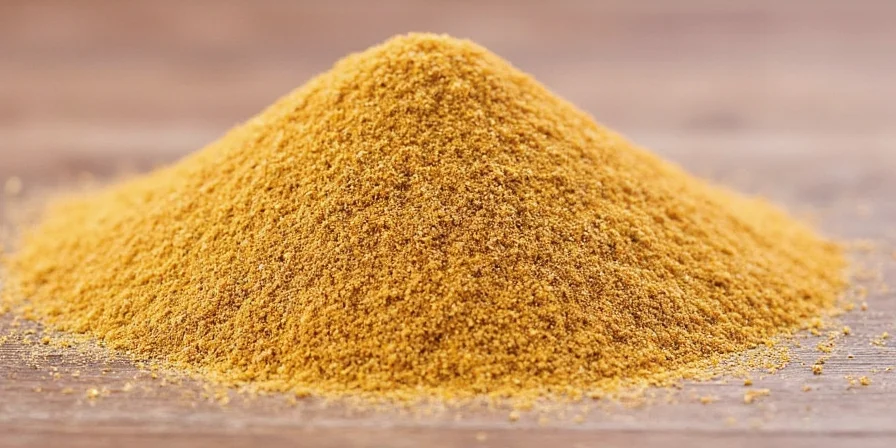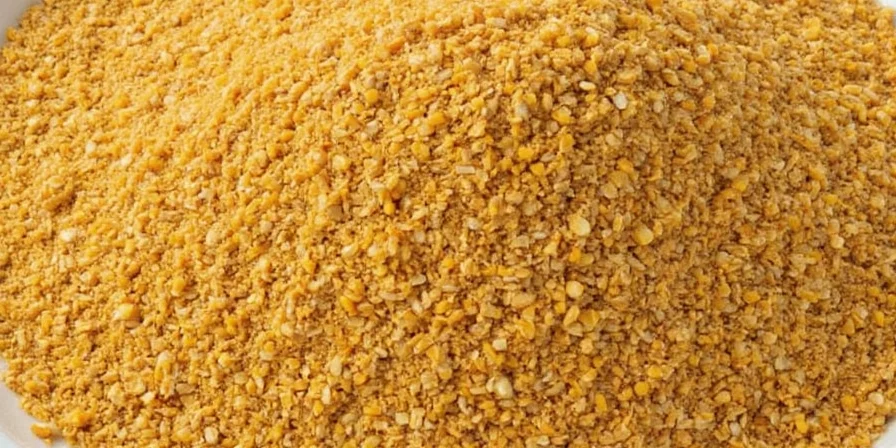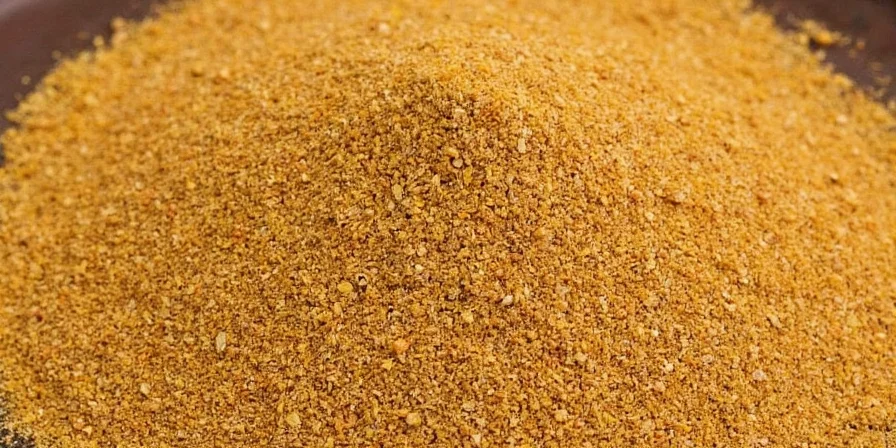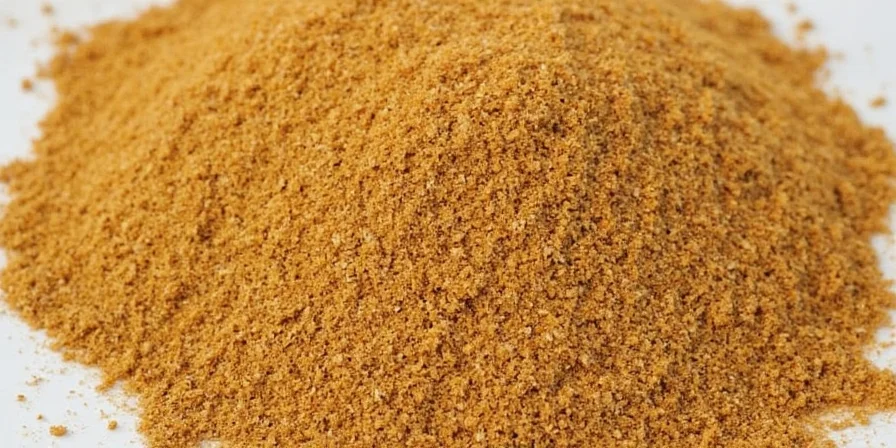Ground fenugreek is a versatile spice commonly used in Indian, Middle Eastern, and Mediterranean cuisines. If you've ever wondered how to properly use this golden-brown powder in your cooking or what makes it different from whole fenugreek seeds, you've come to the right place. This guide delivers exactly what home cooks need to know about ground fenugreek - from basic usage to expert techniques - with practical advice you can apply immediately.
What Is Ground Fenugreek and How Is It Used?
Ground fenugreek comes from Trigonella foenum-graecum seeds that have been dried and finely milled. Unlike whole fenugreek seeds, the ground form releases its distinctive maple-like flavor instantly but loses potency more quickly. Most home cooks use it in curries, breads, and spice blends, but it has specific applications where it truly shines.

Whole seeds maintain freshness longer; ground fenugreek provides immediate flavor impact. Use whole seeds for long cooking processes, ground form for quicker dishes.
Basic Usage Guide for Home Cooks
Most beginners struggle with fenugreek's bitter notes when used incorrectly. Follow these simple guidelines:
How Much Ground Fenugreek to Use
The most common mistake is using too much. For most recipes:
- Curries: 1/4 to 1/2 teaspoon per serving
- Breads: 1/4 teaspoon per cup of flour
- Dry rubs: 1 teaspoon per pound of meat
When to Add Ground Fenugreek
Timing matters more than you might think:
- In wet dishes (curries, stews): Add during the last 10-15 minutes of cooking
- In dry dishes: Toast lightly first (but don't burn)
- In breads: Mix with dry ingredients before adding liquids
| Recipe Type | Recommended Amount | Best Addition Time |
|---|---|---|
| Vegetable curries | 1/4 tsp per serving | After tomatoes soften |
| Meat dishes | 1/2 tsp per pound | With other dry spices |
| Breads & flatbreads | 1/4 tsp per cup flour | With dry ingredients |
Avoiding Common Mistakes
Many home cooks encounter bitterness or overpowering flavor. Here's how to prevent these issues:
Preventing Bitterness
Fenugreek turns bitter when:
- Added too early in cooking
- Overheated (above 356°F/180°C)
- Used with insufficient fat
Freshness Test You Can Do at Home
Ground fenugreek loses potency quickly. Before using, try this test:
- Rub 1/4 teaspoon between your palms
- Smell immediately
- If you don't detect a sweet, maple-like aroma within 5 seconds, it's lost potency

Fresh ground fenugreek should have a distinct maple-like scent when rubbed between fingers.
Simple Recipes to Try First
Start with these beginner-friendly applications before experimenting:
Everyday Curry Base
Add 1/4 teaspoon ground fenugreek to your standard curry spice mix. Add during the last 10 minutes of cooking for subtle depth without bitterness.
Fenugreek Flatbread
Mix 1/2 teaspoon ground fenugreek with 1 cup flour before making dough. Creates a subtle, complex flavor that complements raita (yogurt sauce).
Simple Legume Enhancer
Add 1/4 teaspoon per cup of cooked lentils or chickpeas. Balances earthiness and creates a more rounded flavor profile.

Even distribution is key - mix thoroughly with dry ingredients before adding liquids.
Health Benefits: What Research Actually Shows
Many websites make exaggerated health claims about fenugreek. Based on current research:
Digestive Support
When used in tea form (1 teaspoon seeds steeped 10 minutes), may help with occasional digestive discomfort. Dry ground fenugreek doesn't provide the same effect.
Blood Sugar Considerations
Some studies suggest fenugreek fiber may help moderate blood sugar response when consumed with carbohydrate-rich meals. This doesn't replace medical treatment.
Storage Tips for Maximum Freshness
Ground fenugreek degrades faster than whole seeds. Follow these guidelines:
- Store in an opaque container away from light
- Keep in a cool place (below 68°F/20°C)
- Refrigeration extends shelf life to 18 months
- Pantry storage: maximum 9 months for best flavor

Airtight containers in cool, dark places preserve volatile compounds that create fenugreek's distinctive flavor.
Fenugreek Substitutes When You're Out
If you don't have ground fenugreek, try these alternatives:
- Maple syrup + mustard (for sweet-savory applications)
- Fenugreek leaves (kasoori methi) - use 1 tablespoon fresh = 1/4 teaspoon ground
- Curry powder (contains fenugreek among other spices)
Advanced Techniques for Experienced Cooks
Once you've mastered the basics, try these professional methods:
Fat Solubility Method
Dissolve ground fenugreek in warm ghee or coconut oil before adding to dishes. This carries the flavor compounds more effectively through the dish.
Acid Balancing Framework
For brighter dishes, use a 3:1 ratio of spice to acid (lemon juice or vinegar) to prevent bitterness while maintaining flavor complexity.

The right acid balance transforms fenugreek from bitter to beautifully complex in seafood and vegetable dishes.
Frequently Asked Questions
Can I substitute ground fenugreek for whole seeds?
Yes, but use half the amount of ground fenugreek compared to whole seeds, as it's more concentrated. Ground form works better in quick-cooking dishes, while whole seeds suit long-simmering recipes.
Why does my fenugreek taste bitter?
Three common reasons: 1) Too much was used, 2) It was added too early in cooking, or 3) It was overheated. Try reducing the amount, adding later, or lowering cooking temperature.
How can I tell if my ground fenugreek is still good?
Perform the palm-rub test described earlier. If no maple-like scent emerges within 5 seconds, it's lost potency. Fresh fenugreek maintains vibrant amber color - grayish tones indicate spoilage.
Final Tips for Perfect Results
Ground fenugreek rewards careful handling. Remember these key points:
- Start with small amounts - you can always add more
- Add later in cooking for most applications
- Pair with fat and acid for balanced flavor
- Test freshness before using in important dishes
- Store properly to maintain potency
When used correctly, ground fenugreek adds a subtle complexity that elevates ordinary dishes to something special. It's not about overpowering your food, but creating that "what's that delicious flavor?" moment that makes people ask for your recipe.











 浙公网安备
33010002000092号
浙公网安备
33010002000092号 浙B2-20120091-4
浙B2-20120091-4